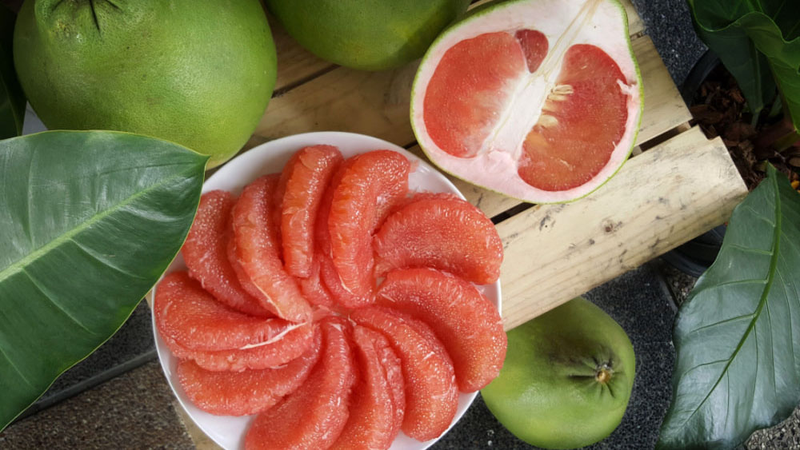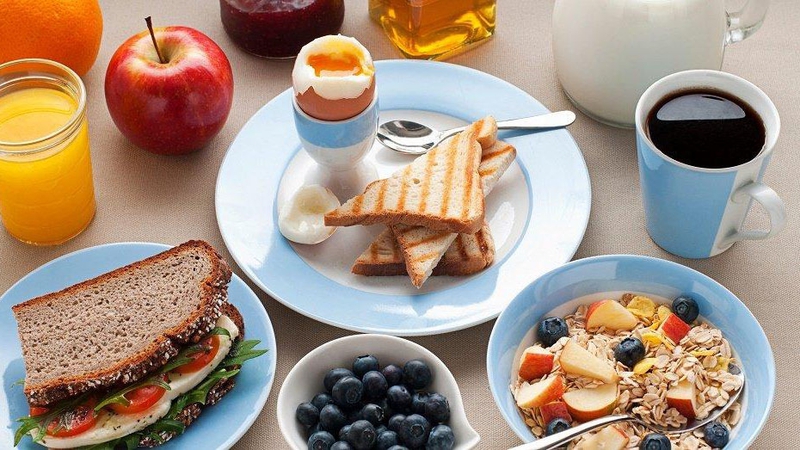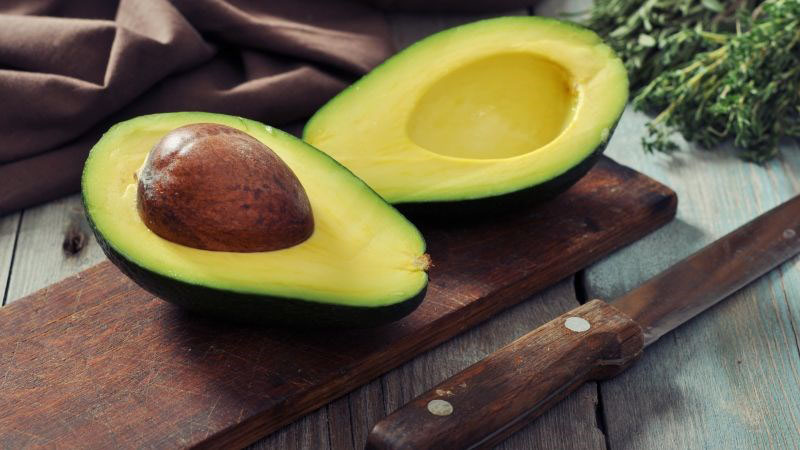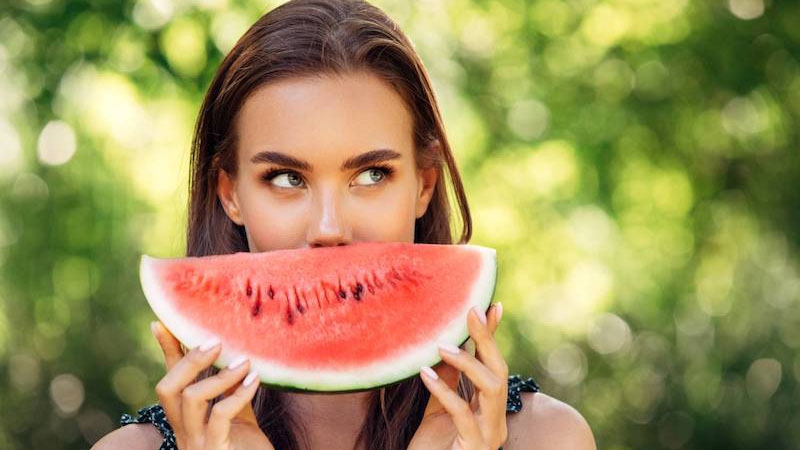Depending on each person’s health status and age, a suitable diet is needed to promote the inherent benefits. In this article, we will answer the question of what fruits the elderly should eat as well as important notes to follow when adding them to the daily diet of the elderly.
As we all know, as the body ages, the organs gradually weaken, causing fatigue and overall decline in health. To combat these effects, adding fruits that are good for the elderly is a great way to provide the vitamins, minerals and fiber needed for optimal health.
What fruits should the elderly eat? That is grapefruit
Grapefruit is a low-calorie, nutritious fruit that is perfect for the elderly. A medium-sized grapefruit contains 64% of the recommended daily intake (RDI) of vitamin C. Vitamin C is an important nutrient in preventing respiratory infections and boosting immune health.

What fruit should the elderly eat is a question of many people.
In addition, a 200-gram grapefruit contains 182 grams of water and 2.2 grams of fiber, which helps relieve constipation and support digestive health.
Best time to eat
The ideal time for the elderly to eat grapefruit is about 30 minutes to 1 hour after breakfast, helping the body effectively absorb nutrients and provide energy for daily activities.
Key notes
- Avoid eating grapefruit when taking antibiotics because this good fruit for the elderly can reduce the ability to absorb the drug.
- Do not eat grapefruit on an empty stomach because it can increase stomach acid, leading to nausea or bloating, especially in people with digestive problems.
- People with diarrhea or poor digestion should also limit eating grapefruit because it can aggravate symptoms.
Oranges and tangerines
In addition to grapefruit, oranges and tangerines are also very good for the elderly. These two fruits are excellent sources of essential nutrients such as potassium, fiber and vitamin C. A medium-sized orange provides 58 Kcal, 1.3g of protein and 1.9g of fiber, making it a great choice for seniors looking to support their heart and overall health. Oranges also help prevent kidney stones, iron deficiency anemia and promote brain function.
Things to know:
- Limit your intake to 3 oranges per day to avoid excess vitamin C, which increases the risk of kidney stones.
- Avoid eating oranges or drinking orange juice if you have a history of heartburn as oranges can aggravate symptoms.
- Be careful when taking medications such as blood pressure medication with orange juice as it can interfere with absorption.
Apples
What fruit should seniors eat? That’s apples. Apples are a popular and versatile fruit. With a high fiber content and a rich supply of antioxidants, apples can help improve digestion and overall health. However, seniors should be careful not to eat too many apples because too much fiber can cause bloating or flatulence. In addition, those who need to control their sugar intake should eat apples in moderation.
Best time to eat
Eating apples in the morning is ideal because galacturonic acid helps detoxify the body, while pectin supports digestive health and helps prevent constipation.

Elderly people should eat apples for breakfast to help prevent constipation.
Healthy Apple Tips
- Always eat apples with the skin on as they are rich in flavonoids and quercetin, which can help reduce the risk of heart disease.
- Avoid eating apples right before bed as digestion can disrupt sleep.
Grapes
Grapes have many health benefits, including cancer prevention, supporting heart health and protecting against high blood pressure. Their high antioxidant content can also boost the immune system and aid memory function, making them a great choice for seniors with Alzheimer’s disease or other cognitive problems.
Caution:
- Avoid combining grapes with seafood, dairy or potassium-rich foods as this can interfere with nutrient absorption and increase potassium levels too much.
- People with diabetes, dental disease or digestive problems should limit their consumption of grapes to avoid side effects.
Kiwi
Kiwis are a fruit that is particularly beneficial for improving digestive health and immune function in older adults. A serving of two small kiwis provides 47 mg of vitamin C, 2 grams of fiber, and other essential compounds that support heart health.
Caution:
- Some older adults may be allergic to kiwis, especially those with a history of allergies to avocados, figs, or pollen.
- Avoid eating kiwis if you are taking blood pressure or blood thinners, as it may increase the effects of these medications.

Elderly people taking blood pressure medication should avoid eating kiwi.
Papaya
Papaya is a popular tropical fruit that is packed with antioxidants and other nutrients that help reduce the risk of cancer, improve digestion, and support overall health. While papaya is a good fruit for seniors, papaya supplementation should be considered, especially for seniors with specific health conditions.
Caution:
- Papaya contains the enzyme papain, which can aggravate respiratory disorders in sensitive individuals.
- Excessive consumption of vitamin C from papaya can lead to the formation of kidney stones.
- The enzyme papain can also cause stomach or intestinal discomfort, so people with digestive problems should consume papaya in moderation.
Bananas
Bananas are high in soluble fiber, which aids digestion and helps relieve constipation in seniors. A 100g serving of bananas contains 3.7g of fiber, which can help eliminate toxins and waste from the body. Additionally, bananas can help regulate blood pressure and support bone health.
Caution:
- Eat 1 banana a day to relieve constipation, but avoid eating too many, which can cause fatigue, diarrhea, or even nerve damage.
- Do not eat bananas on an empty stomach, as this can disrupt the balance of magnesium and vitamin C, leading to stomach upset.
Avocado
Avocados are rich in healthy fats and vitamin E, both of which may support cognitive function and protect against Alzheimer’s disease. The American Heart Association recommends adding avocados to your diet to replace saturated fats and lower cholesterol, triglycerides, and blood pressure.

Avocado contains a lot of healthy fats which are very good for the elderly.
Avocado Supplement Guide:
- Seniors should eat 1 avocado per day, divided into two parts, to absorb maximum nutrients.
- The best time to eat avocado is in the morning, but avoid eating too much because it can cause digestive disorders.
Blueberries
If you do not know what fruits the elderly should eat, you should add blueberries. This is one of the best fruits for the elderly because they are rich in antioxidants, fiber and vitamins such as C and K.
Blueberries help fight the effects of aging, support cardiovascular health and protect against diabetes. They are especially effective in maintaining brain function and improving memory in elderly people with cognitive decline.
Recommended dosage:
- Seniors should consume 100 – 150 grams of blueberries, 2 – 3 times a week.
- Avoid consuming too much to prevent side effects such as bloating, diarrhea or low blood pressure.
Walnuts
Walnuts provide unsaturated fats, fiber, protein, vitamins, and minerals, making them the perfect snack for seniors. Walnuts can be consumed at any time of the day, preferably in the morning, and they are beneficial for heart health, brain function, and overall health.
Seniors should eat about 6-9 walnuts per day to get the benefits without consuming too many calories.
Watermelon
Watermelon is a hydrating fruit, consisting of 92% water, and contains essential nutrients such as vitamins A, C, lycopene, and citrulline. Eating watermelon can slow down the aging process of the brain, which is especially beneficial for people over 60.

Watermelon contains many nutrients that help slow down the aging process.
Note:
- Avoid eating too much watermelon before or after meals as it can dilute gastric juices and cause indigestion.
- Elderly people with kidney disease should avoid combining watermelon with bananas as both are high in potassium and can negatively affect cardiovascular health.
- Do not eat watermelon when you have a cold, fever or other conditions as it can aggravate the symptoms.
Hopefully, the above article has helped you answer the question of what fruits the elderly should eat. As the body ages, adding fresh fruit to the diet is a simple but effective way to maintain good health. Grapefruit, oranges, apples, grapes, kiwi, papaya, bananas, avocados, blueberries, walnuts and watermelon are good fruits for the elderly because they are rich in nutrients and can improve overall health. However, it is important to note that fruit should be added scientifically, only consumed in moderation for optimal health benefits.





